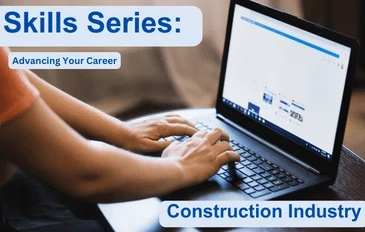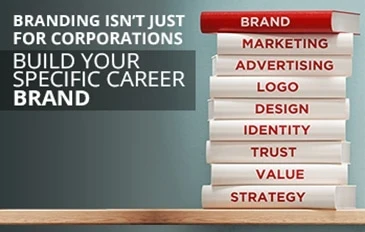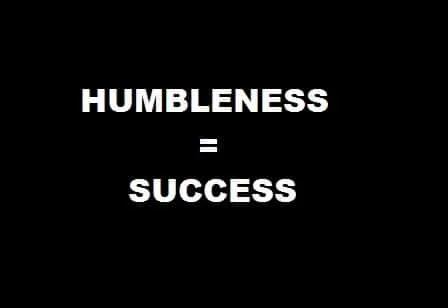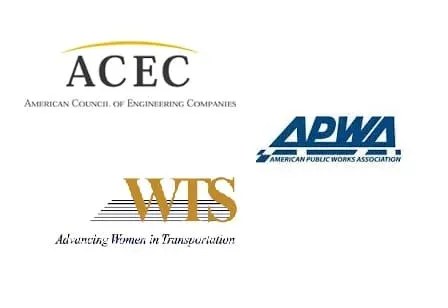Engineering Talent Shortage: How Staffing Agencies Can Help
The demand for skilled engineering talent has never been higher. Whether it’s in software development, mechanical engineering, civil engineering, or any other specialized field, companies across industries are constantly seeking top-notch professionals to drive innovation and growth. However, a significant challenge looms large: the engineering talent shortage.
This shortage is not a new phenomenon, but its impact has intensified in recent years due to various factors. Rapid technological advancements, expanding industries like renewable energy and biotechnology, and the retirement of experienced engineers have all contributed to a widening gap between the demand for engineering talent and its supply. According to a report by the American Society for Engineering Education, the United States alone faces a shortfall of over 60,000 engineers annually.
In the face of this talent crunch, companies are exploring alternative strategies to fill their engineering vacancies efficiently and effectively. One solution that has gained prominence is partnering with staffing agencies specializing in engineering recruitment. These agencies play a crucial role in helping businesses navigate the engineering talent shortage by providing access to a diverse pool of qualified candidates and offering tailored staffing solutions. Let’s delve deeper into how staffing agencies can alleviate the challenges posed by the engineering talent shortage.
Understanding the Engineering Talent Shortage
Before delving into the role of staffing agencies, it’s essential to understand the root causes of the engineering talent shortage. Several factors contribute to this phenomenon:
- Skills Mismatch: The rapid pace of technological evolution often outpaces the traditional education system’s ability to equip students with the latest skills and knowledge required by the industry. As a result, there’s a disconnect between the skills possessed by job seekers and those demanded by employers.
- Demographic Shifts: The engineering workforce is aging, with a large percentage of experienced professionals nearing retirement age. This demographic shift exacerbates the talent shortage, as there aren’t enough younger engineers entering the workforce to replace those who are retiring.
- Global Competition: In today’s interconnected world, companies have access to a global talent pool. While this offers opportunities for diversity and innovation, it also means that businesses must compete with organizations worldwide for top engineering talent.
- Industry Growth: Emerging industries such as renewable energy, artificial intelligence, and biotechnology are experiencing rapid growth, further increasing the demand for specialized engineering skills.
The Role of Staffing Agencies
Staffing agencies specializing in engineering recruitment act as strategic partners for companies seeking to overcome the challenges posed by the talent shortage. Here’s how they can help:
-
Access to Talent Networks: Engineering staffing agencies have extensive networks of candidates with diverse skill sets and experience levels. Whether it’s a seasoned engineer with decades of industry experience or a recent graduate with cutting-edge technical skills, staffing agencies can connect companies with the right candidates for their specific needs.
-
Specialized Expertise: Unlike generalist staffing agencies, engineering-focused firms have a deep understanding of the industry’s intricacies and the technical skills required for various roles. This specialized expertise enables them to source candidates more effectively and assess their qualifications accurately.
-
Streamlined Recruitment Process: Recruiting engineers can be a time-consuming and resource-intensive process for companies, especially when faced with a talent shortage. Staffing agencies streamline the recruitment process by handling tasks such as sourcing, screening, and interviewing candidates, allowing businesses to focus on their core operations.
-
Flexible Staffing Solutions: In addition to permanent placements, engineering staffing agencies offer flexible staffing solutions such as contract and temporary placements. This flexibility allows companies to quickly scale their teams up or down in response to changing project requirements or market conditions.
-
Market Insights and Trends: Engineering staffing agencies possess valuable insights into market trends, salary benchmarks, and emerging technologies. By leveraging this expertise, companies can make informed decisions about their hiring strategies and stay ahead of the competition.
Best Practices for Partnering with Staffing Agencies
While partnering with a staffing agency can be beneficial, it’s essential for companies to approach the relationship strategically. Here are some best practices to maximize the value of working with engineering staffing agencies:
-
Clearly Define Requirements: Clearly communicate your organization’s requirements, including technical skills, experience level, and cultural fit criteria, to the staffing agency. Providing detailed job descriptions and project specifications will help recruiters identify candidates who are the best fit for the role.
-
Establish a Strong Partnership: Build a collaborative relationship with the staffing agency based on trust, transparency, and open communication. Keep the lines of communication open throughout the recruitment process, providing feedback on candidates and adjusting requirements as needed.
-
Evaluate Performance Metrics: Monitor key performance metrics such as time-to-fill, candidate quality, and retention rates to assess the staffing agency’s effectiveness. Regularly review these metrics with the agency to identify areas for improvement and optimize the recruitment process.
-
Invest in Employer Branding: Position your company as an employer of choice to attract top engineering talent. Showcase your company culture, values, and career opportunities through employer branding initiatives such as social media presence, employee testimonials, and participation in industry events.
-
Stay Agile and Adaptive: The engineering landscape is constantly evolving, so it’s essential to remain agile and adaptive in your hiring approach. Be open to exploring innovative staffing solutions and adjusting your strategies based on market dynamics and emerging trends.
The engineering talent shortage presents a significant challenge for companies across industries, but it also offers opportunities for innovation and growth. By partnering with staffing agencies specializing in engineering recruitment, businesses can access a diverse pool of qualified candidates, streamline their recruitment processes, and stay ahead of the competition.
However, success in navigating the talent shortage requires a strategic and collaborative approach. Companies must clearly define their requirements, establish strong partnerships with staffing agencies, monitor performance metrics, invest in employer branding, and remain agile and adaptive in their hiring strategies.
In conclusion, staffing agencies play a vital role in helping companies overcome the challenges posed by the engineering talent shortage. By leveraging their expertise, networks, and resources, businesses can build high-performing engineering teams that drive innovation, productivity, and success in today’s dynamic marketplace.
Webuild Staffing Agency is a leading executive search and staffing agency dedicated to the construction, engineering and environmental industries. To learn more please visit: www.webuildstaffing.com
Innovations in Engineering Staffing: Staying Ahead in a Competitive Market
The engineering industry is in a constant state of evolution, marked by groundbreaking innovations and technological advancements. In such a dynamic landscape, the demand for top engineering talent has never been higher. To thrive in this competitive market, both job seekers and employers must embrace innovative approaches to engineering staffing. In this comprehensive blog post, we will explore the latest innovations in engineering staffing and provide strategies on how to stay ahead in this fiercely competitive industry.
Understanding the Evolution of Engineering Staffing
Engineering staffing has come a long way from traditional hiring practices. In the past, employers relied heavily on resumes and interviews to evaluate candidates. However, this approach had limitations in assessing a candidate’s practical skills and overall fit for the job.
Today, innovations in engineering staffing have revolutionized the way candidates are sourced, evaluated, and matched with employers. These innovations leverage technology, data analytics, and a deep understanding of the engineering landscape to create a more efficient and effective recruitment process.
Innovations in Engineering Staffing
-
Artificial Intelligence (AI) and Machine Learning
AI and machine learning have transformed engineering staffing by streamlining candidate selection and matching processes. These technologies can analyze vast datasets to identify suitable candidates based on skills, experiences, and even cultural fit. This leads to more accurate and efficient candidate matching, saving both time and resources for employers and staffing agencies.
-
Skills Assessment Platforms
Innovative skills assessment platforms allow candidates to showcase their technical abilities through practical tests and challenges. These platforms provide a more comprehensive view of a candidate’s skills than traditional interviews or resumes. Employers can assess candidates’ problem-solving abilities, coding skills, or engineering design capabilities directly, ensuring a better match for job requirements.
-
Video Interviews and Virtual Reality
Video interviews and virtual reality simulations have become invaluable tools in engineering staffing. These technologies enable employers to conduct remote interviews and practical assessments, making it easier to connect with top talent from anywhere in the world. Candidates can demonstrate their skills and expertise, providing employers with a more immersive view of their abilities.
-
Predictive Analytics
Predictive analytics use historical data and machine learning algorithms to forecast future trends in the engineering job market. Staffing agencies and employers can use this data to make informed decisions about hiring, salary negotiations, and workforce planning. This proactive approach helps organizations stay ahead of staffing challenges.
-
Digital Recruitment Marketing
Employers are increasingly using digital recruitment marketing strategies to attract engineering talent. These strategies include creating compelling employer branding, using social media for talent acquisition, and optimizing job postings for search engines. Digital recruitment marketing ensures that job opportunities reach a broader and more diverse candidate pool.
Strategies to Stay Ahead in Engineering Staffing
-
Embrace Technological Advancements
To stay ahead in engineering staffing, both job seekers and employers must embrace technological advancements. Job seekers should familiarize themselves with skills assessment platforms and virtual interviews to showcase their abilities effectively. Employers and staffing agencies should invest in AI-driven candidate matching systems and predictive analytics to identify top talent.
-
Continuous Skills Development
The engineering field is dynamic, with new technologies and methodologies emerging regularly. Job seekers should prioritize continuous skills development to remain competitive. Employers can offer training and development programs to enhance the skills of their existing workforce and attract top talent.
-
Adapt to Remote Work Trends
The COVID-19 pandemic accelerated the adoption of remote work in the engineering industry. Job seekers and employers should be open to remote work arrangements and the use of virtual collaboration tools. This flexibility widens the talent pool and ensures access to the best candidates, regardless of geographical location.
-
Foster Diversity and Inclusion
Innovation thrives in diverse and inclusive environments. Employers should prioritize diversity and inclusion in their hiring practices, recognizing that a diverse workforce brings a variety of perspectives and approaches to problem-solving. Staffing agencies can play a crucial role in promoting diversity by presenting diverse candidate pools to employers.
-
Leverage Data-Driven Insights
Data-driven insights from predictive analytics can provide a competitive edge in staffing. Employers should use these insights to make informed decisions about hiring strategies and workforce planning. Job seekers can leverage data to identify high-demand skills and tailor their career paths accordingly.
-
Build a Strong Online Presence
Job seekers should build a strong online presence through professional networking platforms like LinkedIn. Employers should invest in digital recruitment marketing strategies to attract passive candidates. A compelling online presence ensures that both job seekers and employers are visible and accessible in the competitive engineering staffing market.
-
Collaborate with Specialized Staffing Agencies
Specialized engineering staffing agencies have an in-depth understanding of the industry’s evolving landscape. Collaborating with these agencies provides access to their expertise, network, and innovative recruitment tools. They can connect job seekers with tailored opportunities and help employers find the perfect match for their engineering positions.
Conclusion: Thriving in the Evolving Engineering Staffing Landscape
Innovations in engineering staffing are reshaping how job seekers and employers connect in a fiercely competitive market. Embracing technologies like AI, skills assessment platforms, and virtual interviews can streamline the recruitment process. Continuous skills development, adaptability to remote work, and a commitment to diversity and inclusion are essential strategies for success.
By leveraging data-driven insights, building a strong online presence, and collaborating with specialized staffing agencies, both job seekers and employers can navigate the evolving engineering staffing landscape with confidence. In doing so, they can stay ahead, find the right opportunities or candidates, and contribute to the ongoing innovation and growth of the engineering industry.
Webuild Staffing Agency is a leading executive search and staffing agency dedicated to the construction, engineering and environmental industries. To learn more please visit: www.webuildstaffing.com
Skills Series: Advancing Your Career

Skills Series: Advancing Your Career
Congratulations, you’ve landed a job in the construction industry! You’ve worked hard to get to where you are, but your journey doesn’t end here. Now, it’s time to start thinking about how you can advance your career and achieve your long-term goals. Whether you’re just starting out or you’ve been in the industry for years, there are always opportunities to grow and develop your skills.
In this article, we’ll discuss strategies for advancing your career in the construction industry, including developing new skills, seeking out mentors, and exploring leadership opportunities.
Developing New Skills
One of the keys to advancing your career in the construction industry is to constantly develop new skills. The industry is constantly evolving, and staying up-to-date with the latest technologies, regulations, and best practices is essential for success. Here are some strategies for developing new skills:
- Take courses and attend workshops: Many construction associations and organizations offer courses and workshops on a variety of topics, from project management to safety to sustainability. Look for opportunities to expand your knowledge and skills in areas that interest you.
- Pursue certifications: Certifications can demonstrate your expertise and knowledge in specific areas of the construction industry. Some common certifications in the industry include LEED (Leadership in Energy and Environmental Design), OSHA (Occupational Safety and Health Administration), and PMP (Project Management Professional).
- Attend conferences and trade shows: Conferences and trade shows are great opportunities to learn about new products, technologies, and trends in the industry. They also offer opportunities to network with other professionals and learn from their experiences.
- Seek out cross-training opportunities: Cross-training allows you to gain experience in different areas of the construction industry. If you’re a project manager, for example, you might seek out opportunities to learn more about estimating or scheduling.
Seeking Out Mentors
Having a mentor can be incredibly valuable for career development. A mentor is someone who has more experience in the industry and can offer guidance and advice based on their own experiences. Here are some tips for finding a mentor:
- Look for someone you admire: Think about professionals in the industry who you admire and respect. Look for someone who has achieved the type of career success you hope to achieve, and who shares similar values and goals.
- Network: Networking is key for finding a mentor. Attend industry events, join professional organizations, and connect with professionals on LinkedIn. Once you’ve identified potential mentors, reach out to them and ask if they’d be willing to meet with you to discuss your career goals.
- Be open to feedback: One of the most valuable aspects of having a mentor is the feedback and advice they can offer. Be open to constructive criticism and take their advice to heart.
Exploring Leadership Opportunities
Leadership opportunities are a great way to demonstrate your skills and expertise in the construction industry. Whether it’s leading a project team or serving on a professional association committee, leadership roles can help you build your professional network and demonstrate your ability to take on new challenges. Here are some strategies for exploring leadership opportunities:
- Volunteer for industry associations: Many professional associations and organizations have committees and task forces that are responsible for organizing events, developing standards, and advocating for the industry. Volunteer to serve on one of these committees to build your professional network and demonstrate your commitment to the industry.
- Take on leadership roles within your company: Look for opportunities to lead projects or teams within your company. This can help you build relationships with colleagues and demonstrate your ability to take on new challenges.
- Attend leadership development programs: Many construction associations and organizations offer leadership development programs that can help you build your skills and knowledge in areas such as communication, conflict resolution, and decision-making.
Michael DeSafey is a leading executive recruiter for professionals in the construction, engineering, and environmental industries. He is currently the President of Webuild Staffing: www.webuildstaffing.com. To learn more about Michael, or to follow his blog, please visit www.michaeldesafey.com.
Category: Career Training, Construction, Interview And Job Search Tips, Jobs
The Benefits of Pursuing a Career in Construction

The Benefits of Pursuing a Career in Construction
The construction industry offers a range of career opportunities, from entry-level positions to more advanced roles. In this blog post, we’ll be discussing some of the benefits of pursuing a career in construction, including the potential for high earning potential, opportunities for advancement, and the satisfaction of working on tangible projects that can make a difference in people’s lives
The construction industry offers a range of career opportunities, from entry-level positions to more advanced roles. If you’re considering a career in construction, here are some key benefits to consider:
- High earning potential: Many construction jobs offer competitive salaries, and there is often potential for overtime pay and bonuses. In addition, skilled tradespeople such as electricians and plumbers can command higher salaries, especially in areas with a high demand for their services.
- Opportunities for advancement: The construction industry offers many opportunities for advancement, whether through on-the-job training, education and certification programs, or by taking on more responsibility on a project. Many construction workers start out in entry-level positions and work their way up to more advanced roles over time.
- Hands-on work: If you enjoy working with your hands and seeing the tangible results of your labor, a career in construction can be very rewarding. From building new homes and commercial buildings to renovating existing structures, construction work allows you to work on a wide range of projects and see the finished product firsthand.
- Sense of accomplishment: Many people who work in construction take pride in the work they do, and there is a sense of accomplishment that comes from completing a project and seeing the results of your labor. Whether you’re building a new home or renovating an existing structure, you’ll be able to see the tangible impact of your work.
- Job stability: While the construction industry can be cyclical and may experience ups and downs, it is a stable and growing sector that is always in need of skilled workers. According to the Bureau of Labor Statistics, employment in the construction industry is expected to grow by 8% between 2020 and 2030, which is faster than the average for all occupations.
Overall, a career in construction can be a rewarding and lucrative choice, with opportunities for advancement, high earning potential, and a sense of accomplishment. If you’re interested in pursuing a career in construction, it’s important to be willing to learn and work hard, and to be open to new opportunities as they arise.
Michael DeSafey is a leading executive recruiter for professionals in the construction, engineering, and environmental industries. He is currently the President of Webuild Staffing: www.webuildstaffing.com. To learn more about Michael, or to follow his blog, please visit www.michaeldesafey.com.
How to Network and Find Construction Opportunities

How to Network and Find Construction Opportunities
Networking is a crucial aspect of finding job opportunities in any industry, and the construction industry is no exception. In this post, we’ll be discussing some key strategies for networking and finding construction job opportunities, including how to identify and connect with potential employers, as well as how to make the most of professional connections and industry events
One of the most effective ways to find construction job opportunities is through networking – connecting with professionals and organizations in the industry and building relationships. Here are some key strategies for networking in the construction industry:
Identify key players in the industry: Research companies and organizations that are active in the construction industry, and make a list of the key players in your area. This can include contractors, suppliers, trade associations, and other organizations that are involved in the construction process.
Connect with professionals: Reach out to professionals in the construction industry and introduce yourself. This can be through LinkedIn, professional organizations, or industry events. Make sure to have a clear idea of what you’re looking for and be prepared to explain your background and goals.
Join professional organizations: Many trade associations and other professional organizations have local chapters that host events and provide networking opportunities. Joining one of these organizations can be a great way to connect with other professionals and learn about job openings and other opportunities.
Attend industry events: Industry events such as trade shows, conferences, and networking events can be excellent opportunities to connect with professionals and learn about job openings. Make sure to bring business cards and be prepared to introduce yourself and explain your background and goals.
Utilize online resources: There are many online resources that can help you connect with professionals and organizations in the construction industry. LinkedIn is a particularly valuable resource for finding job
Michael DeSafey is a leading executive recruiter for professionals in the construction, engineering, and environmental industries. He is currently the President of Webuild Staffing: www.webuildstaffing.com. To learn more about Michael, or to follow his blog, please visit www.michaeldesafey.com.
Category: Career Training, Construction, Interview And Job Search Tips, Jobs
Personal Power Can Help You Find Fulfillment in Your Career: Learn the Seven P’s

Personal Power Can Help You Find Fulfillment in Your Career: Learn the Seven P’s
No matter what field you’re in, or what stage you’re at in your career, developing a sense of personal power can help you find fulfillment. Personal power is the ability to take control of your life and create the outcomes you want.
It’s about having agency, choice, and confidence in your ability to make things happen. The good news is that personal power is something that anyone can cultivate.
Purpose
Individuals with a clear purpose are able to stay focused and motivated, even when the going gets tough. They know what they want to achieve and why it’s important. Second, personal power requires skill; those who can use their skills effectively can often accomplish great things. And finally, personal power also requires relationships. Those who have strong relationships with others can often achieve more than those without.
Plan
Personal power can help you find fulfillment in your career plan. Career advancement can bring happiness and a sense of accomplishment. But it’s not just about finding the right job; it’s about using your power to create a career plan that works for you. Take the time to consider what you want to do with your life and what will make you happy. If you’re unsure, look at different options and try different things. There are many fields in which you can use your power to make a difference, including construction, engineering, and environmental work. Find something that speaks to you, and then go after it with everything you’ve got. Fulfillment comes from using your power to create the life you want. So go out there and make it happen.
Passion
Environmental science is the study of environmental issues, including global warming, ozone depletion, acid rain, and water and air pollution. This field evolves constantly as new issues emerge and new technologies are developed to address them. As an environmental scientist, you must be passionate about your work to stay abreast of the latest developments and make a difference in the world. If you are not passionate about environmental issues, you will likely find yourself quickly becoming bored or frustrated with the field. However, if you’re truly passionate about protecting the environment, you will find great fulfillment in a career as an environmental scientist.
Practice
When we take the time to hone our skills and develop our talents, we open up a world of possibility. We become better equipped to deal with challenges and seize opportunities as they arise. We find fulfillment in our work and satisfaction in our accomplishments. So, whatever you want to achieve in your career, don’t be afraid to put in the hard work required. You might not see results overnight, but with dedication and perseverance, you’ll eventually reach your goal—and when you do, the sense of achievement will be much sweeter. Just remember, if you want to find success and fulfillment in your career, start by tapping into your power. Then practice what you’ve learned until it becomes second nature. You’ll be amazed at what you can achieve with time and effort.
Presence
Engineering and construction are industries that require a great deal of personal power. After all, these are fields that require regularly working with heavy machinery, large tools, and sometimes dangerous materials. As a result, it is essential to be present and focused while you work. Engineering and construction are also fields in which a lot can go wrong if you’re not paying attention. One moment of distraction can result in an accident or injury. That’s why it’s so important to be present in the moment and focus on the task at hand. Once you’ve learned to do this, you’ll find that you can work more efficiently and precisely. In addition, being present and focused on your work will also help you find more fulfillment in your career.
Pain
Construction work can be grueling. Long hours spent working in the hot sun, lifting heavy materials, and dealing with challenging customers can make the job feel more like a punishment than a career. But for those who can push through the pain, construction work can also be immensely satisfying. The sense of pride that comes from completing a challenging project, the satisfaction of knowing that you helped to build something that will be used and enjoyed by others, and the camaraderie that develops among coworkers can make construction work a very fulfilling career. If you’re willing to put in the hard work, construction work can be a great way to find career fulfillment.
Positivity
Career advancement can seem difficult, but it’s often made easier simply by having a positive outlook. Positivity can open doors that might otherwise remain closed and help you to find fulfillment in your work. The first step is to identify your career goals. Once you know what you want to achieve, you can take steps to reach those goals. It’s also important to build strong relationships with coworkers and superiors. These relationships can provide valuable networking opportunities and help to create a mutually beneficial work environment. Finally, always remember to stay positive and open-minded in your career journey. These principles will help you overcome challenges and find lasting success.
Conclusion
If you want fulfillment in your career, start by looking inward. Consider what personal power means to you and how you can use it to achieve your goals. Once you have a clear idea of what you want, focus on the seven P’s of success, and keep in mind that proper preparation prevents poor performance. Implement these principles in your life and career and watch as the pieces fall into place.
Michael DeSafey is a leading executive recruiter for professionals in the construction, engineering, and environmental industries. He is currently the President of Webuild Staffing: www.webuildstaffing.com. To learn more about Michael, or to follow his blog, please visit www.michaeldesafey.com.
So You Had a Career Failure. Now What?

So You Had a Career Failure. Now What?
Do you remember the last time you experienced career failure, and how it made you feel? You probably felt discouraged and lost some self-esteem.
However, failure shouldn’t be a determinant of your self-worth or self-acceptance. Instead, you should view failure as a stepping-stone to success and a sign that you should dare to take risks in life. It might also signify that you’re a step closer to accomplishing your goals.
Can Failure Lead You to Success?
So you’ve failed, and you feel discouraged. But have you ever encountered the phrase “Failing to success“?
This phrase implies that it’s possible to use your failure to develop the traits and skills required to help you succeed. However, to accomplish your professional goals after experiencing failure, you must first identify the variables that led to this failure.
Lan Nguyen Chaplin talks about how you can use career failure to rebuild your confidence and take back control of your professional journey. Here are some ways that failing can ultimately help you succeed:
- It allows you to develop resilience. If you were fired from a job you love, you could choose to wallow in misery, or you could stay focused and cheerful. Failing in your career teaches you resilience, which is crucial because it allows you to quickly bounce back from setbacks. Resilience also gives you a positive outlook on life and the future.
- It helps you develop courage. Failing is a sign that you aren’t afraid to try new things. Careers such as engineering require individuals who can brainstorm new ideas and try out different problem-solving approaches.
- It provides you with experience. Hiring managers look for employees who have experience. Every failure offers knowledge you can use in your career journey. This knowledge gives you the upper hand in organizations, because it helps you make yourself a valuable asset to a company.
- It removes fear. Are you procrastinating and reluctant to try new things? These are signs of anxiety, and they are detrimental to your success. When you learn to recover from failure, you become open to trying new ideas in the future.
- It gives you an opportunity to share your story. Experiencing failure, and later recovering from it, gives you a valuable experience you can later share with others, which can in turn motivate them to take risks by trying out new things. It also gives you the opportunity to embrace vulnerability while strengthening your bond with other people.
How Do You Cope with Failure?
How do you move forward after experiencing career failure?
1. Don’t let it break you.
You will experience several setbacks in your career, but you shouldn’t let them define your destiny. For example, if you fail in a construction project, you should consider the positive lessons rather than dwelling on the failures. Your mistakes shouldn’t keep you from accomplishing your desired goals.
2. Learn to accept the situation.
Don’t be hard on yourself and curse the universe for your failures—instead, accept them and try to figure out how to move on from them. Acceptance means putting aside negative thoughts while taking constructive criticism on board.
Acceptance helps you avoid career regrets and pushes you to stop dwelling on rejection. Learn to accept responsibility for your failures. This promotes development, which leads to career accomplishments.
3. Understand that failure leads to success.
All successful men and women have a story about failure. However, all these successful people refused to let failure stand in the way of their success, and instead set out to take risks in life by trying new things.
Rather than viewing failure as a sign of defeat, consider it inspiration to do better in your career. Reading about people’s success stories can help you believe in yourself and move forward with confidence.
4. Identify the cause.
If you encounter failure in your environmental career, you should seek to identify the cause. This will help you make the right modifications to your future projects.
5. Keep the faith.
It’s common to feel defeated when you experience failure in your career. However, you will need to learn that challenges are an essential part of achieving your desired goals. Therefore, after experiencing failure, you should work towards regaining control of your rational side, and then proceed to accomplish your goals with confidence.
Conclusion
Although experiencing career failure is overwhelming, you should find a way to overcome the failure and move on with your life. You should also avoid criticizing yourself to much, since it is impossible to avoid failure in life.
Michael DeSafey is a leading executive recruiter for professionals in the construction, engineering, and environmental industries. He is currently the President of Webuild Staffing: www.webuildstaffing.com. To learn more about Michael, or to follow his blog, please visit www.michaeldesafey.com.
Category: Career Training, Construction, Engineering, Environmental
The Future Looks Bright for Environmental Professionals

The Future Looks Bright for Environmental Professionals
The 2015 Paris Agreement marked a milestone in the cooperation of governments around the world to solve the issue of climate change. However, in 2019, climate scientists and experts issued a dire warning: the only way to save the planet was to take decisive action and cut global carbon emissions by half in the coming years, before the damage becomes irreversible. Since then, major companies have stepped up. In January 2020, Microsoft made a pledge to become carbon-negative by 2030, following on the heels of Amazon and other corporations striving to cut their carbon footprint. This all means that environmental professionals will become increasingly important, and these jobs will see growth in the coming years.
Fastest Growing Green Jobs
According to the U.S. Bureau of Labor Statistics, environmental scientists and specialists are set to be in high demand, experiencing an 8% job growth in the next decade —higher than the average job growth across the market. Environmental engineering jobs are expected to grow by 5%. Other fast-growing green jobs include service technicians and conservation scientists. These jobs are all essential in curbing climate change, whether through renewable energy, environmental conservation, or cleanup. Thus, the current pressure on companies and governments to reduce carbon emissions will spur job-growth in these fields.
Renewable Energy is on the Rise
Since 2008, the United States has doubled its electricity generation of renewable energy. In 2018, renewables provided around 18% of all electricity generated in the US, with about 90% coming from wind and solar power. Battery storage is becoming easier and solar panels are becoming cheaper to produce. In the energy sector, wind and solar approaches seem well-poised to continue their rise. While other energy sources, particularly oil, saw dramatic declines during the COVID-19 pandemic, renewable energies fared surprisingly well and even saw growth during this period. As wind and solar power continues to expand, new jobs to build, install, and maintain this infrastructure will be in high demand.
The Buzz Around Electric Cars
Silicon Valley upstart Tesla made the news in 2018 when it outpaced luxury car-maker Mercedes-Benz in quarterly car sales for the first time ever. This signals both an acceleration in Tesla’s growth, and the growth of electric car sales around the world. Mechanical, electrical, and software engineers will experience job growth as more car makers transition to low and zero-emissions vehicles, like Ford’s new F-150 electric pickup truck. Researchers such as chemists and industrial designers who develop high-capacity batteries and electric engines, as well as service technicians and manufacturers, will be in high demand as electric car production increases.
Carbon Capture is the Future
Many scientists agree that at this point, cutting down emissions to zero isn’t enough. We also need to pull carbon dioxide out of the atmosphere. This is where carbon capture comes in. This technology is at the center of research and development all over the world, and has incredible potential both as a way to save the planet and to create a profitable industry. Growth in carbon capture and sequestration methods and technology could lead to new jobs for environmental professionals —though we’ll have to wait and see.
Whatever your preferred field is, as an environmental professional you have chosen to save the world. It’s abundantly clear that right now the world needs you more than ever. And with the rise in jobs, industries, and technologies, you’ll have many opportunities to make a dent in the climate crisis.
Michael DeSafey is a leading executive recruiter for professionals in the construction, engineering and environmental industries. He is currently the President of Webuild Staffing www.webuildstaffing.com . To learn more about Michael or to follow his blog please visit www.michaeldesafey.com
Category: Career Training, Environmental, Interview And Job Search Tips, Jobs
Environmental Engineers to See Growth in Salaries

Environmental Engineers to See Growth in Salaries
Environmental engineers, whose job is to prevent or reduce the negative impact that humans have on the world, can look to an increase in job opportunities and salaries in coming years.
Outlook
According to the U.S. Bureau of Labor Statistics, employment in environmental engineering is expected to grow by 5% from 2018 to 2028. Increasing concern over global warming, as well as air and water quality, have driven the demand for more workers in this field.
As of its May 2019 report, the median salary for this group was $88,860 per year, or $42.72 per hour. This ranged from $53,330 for the lowest 10% of earners in the field, to $142,070 for the highest 10%. States with the highest levels of employment are California. Texas, New York, Pennsylvania, and Massachusetts —but jobs are available throughout the country and internationally.
The U.S. News and World Report overview ranked environmental engineering as #3 in Best Engineering jobs, #21 in Best STEM jobs, and #48 in Best 100 jobs. The report gave an “Above Average” rating for upward mobility, which means that it offers good opportunity for advancement and salary increases.
What Is an Environmental Engineer?
Environmental engineers have their choice of a variety of industries and locations. They might work in an office or out in the field. They are “housed” within other industries, including resource industries such as forestry, mining, pulp and paper, chemical processing, fisheries, agriculture, and oil and gas. Environmental engineers also can work in areas such as research, education, training, or consulting. Beyond those high-level areas, environmental engineers can specialize and focus on improving recycling, waste disposal, public health, or water and air pollution control. Or they can work on global issues, such as the quality of drinking water, concern about climate change, or environmental sustainability.
The education and qualifications required are generally a bachelor’s degree in environmental engineering, or another engineering field. But employers also look for hands-on experience; as such, cooperative programs that award credit for structured job experience are also valuable. To be successful in this field, candidates need technical knowledge in their focus area, hands-on problem-solving skills, and an understanding of environmental issues.
Although environmental engineering focuses on technical skills, the job often involves business and political concerns, which creates a unique learning experience. A U.S. News & World Report overview of best jobs states that “In many ways, environmental engineers work at the intersection of regulations, technology, and people, and they’re responsible for making them all work together.” On a normal day, an environmental engineer might write an environmental report, or design a project to protect the environment. They might review regulations and advise governments or business leaders about potential concerns. Or they could inspect industries for compliance to regulations.
Getting a Job as an Environmental Engineer
The U.S. Bureau of Labor Statistics gives data on the percentages of jobs in each industry and each state, which may be a good place to start if you want to work in a specific area. Another option is to look at job posts near you to see what kinds of environmental engineering jobs are available there. When it comes to environmental concerns, each geographic region will have different challenges, so if you want to stay in a certain area, you should focus on learning about the problems that need addressing there. Find out what the most urgent needs are where you want to work, and study them.
Hands-on experience is equally important. It will give you a better foundation for your knowledge, skills to list on your resume, and it can help you decide what kinds of projects you most want to work on. Some colleges offer cooperative programs that allow students to gain practical experience while they complete their education, and some companies will help pay for your education while you work for them and gain experience.
Michael DeSafey is a leading executive recruiter for professionals in the construction, engineering and environmental industries. He is currently the President of Webuild Staffing www.webuildstaffing.com . To learn more about Michael or to follow his blog please visit www.michaeldesafey.com
Category: Career Training, Engineering, Environmental, Interview And Job Search Tips, Jobs
Do Internships Lead to Jobs?

Do Internships Lead to Jobs?
Ah, the new intern —starry-eyed, so earnest, so sure that his hard work will lead to a job offer. Often, interns come onto construction or engineering projects believing they will get a job out of the experience, only to leave empty-handed. And yet, you also hear plenty of stories from people who secured their jobs through internships. So, which is it? Do internships lead to jobs in the construction and engineering industries?
Paid or Unpaid?
It turns out that whether you’re a paid or unpaid intern could be the greatest factor in whether you get a job offer. According to studies by the National Association of Colleges and Employers, if you are working as a paid intern, odds are 60% that you will be offered a job. Unfortunately, for unpaid interns, the chances of getting a job offer drop to 37%. If you’re in the market for an internship, your best bet is therefore to keep searching until you find a paid one. Despite what you might think, it might not be that hard. According to the NACE’s research, half of all college internships are paid. The Wall Street Journal similarly reported in 2018 that paid internships were on the rise, while unpaid internships were becoming less popular.
Increase Your Odds
There are certainly things you can do during your internship to increase your chances of being offered a job. Perhaps the most assertive one is to make your intention clear to your supervisor at the outset of the internship. Try something like, “My goal is to so exceed your expectations that I am offered a full-time job.”
Forbes magazine recommends showing your supervisor your work ethics and your engagement. Despite all the distractions of college life, it’s the intern who manages their time well and remains committed to the internship who will get the job offer. Supervisors also want to see an engaged intern, someone who isn’t just showing up to do the bare minimum. Ask questions, request to work on different kinds of projects, show a real desire to learn and grow from the internship opportunity.
According to Businesslnsider.com, asking for informational interviews with different leaders at the company will better your odds of being hired. An informational interview is one in which you ask questions to learn about the real-life experience of someone working in a field or company that interests you. Not only will this help you rub elbows with leadership, but it will show a high level of engagement in the internship.
When seeking a paid internship, look at large construction and engineering firms that are sure to have the funds to pay you. You are less likely to find a paid internship at smaller firms. However, an unpaid internship at a smaller company can bring other benefits, such as having the opportunity to see your projects through from start to finish.
In sum, if you want the best odds at snagging a job offer at the end of an internship, 1) find a paid internship, 2) let them know you want a job, 3) do your very best work, and 4) network while you’re there. There’s still no guarantee that you’ll get a job even if you do all these things; but if you follow the guidelines above, you are more likely to have a worthwhile internship experience, regardless of whether you’re paid.
Michael DeSafey is a leading executive recruiter for professionals in the construction, engineering and environmental industries. He is currently the President of Webuild Staffing www.webuildstaffing.com . To learn more about Michael or to follow his blog please visit www.michaeldesafey.com
The Construction Career Plan

The Construction Career Plan
In this career plan, we will cover basic incomes and job descriptions from entry-level workers to supervisors and project managers, to general managers and executive-level positions. Construction and engineering encompass a wide variety of jobs; this brief overview aims to give you some examples to help with career planning.
Entry-Level Construction and Craftsmanship
An entry-level worker may earn $10 to $15 per hour. Entry-level workers are tasked with removing debris, distributing materials, maintaining tools, and working at heights. These workers must have a high school diploma or equivalent, and can be a laborer in areas such as carpentry, general contractors, landscaping, painting, commercial construction, flooring and tiling, masonry, roofing, etc.
After four years, they can earn $25 to $45 per hour as a craftsperson. Typically starting as a construction helper, workers may choose to specialize and earn certifications in welding, building scaffolding, or any other specialization. They also have the choice of becoming an apprentice with an electrician, plumber, or carpenter.
Project Supervisors and Project Managers
After a worker develops experience as a journeyman, they can move up to the project manager position. A management degree, such as an MBA, is preferred. Project supervisors earn about $79,000 a year, and project managers earn about $91,000 per year in different markets: power, industrial, water, manufacturing, transportation, petroleum, building, sewers, telecoms, and hazardous waste. Withing those, project supervisors and managers can work on four different types of projects (residential home building, heavy industrial, commercial and institutional, and engineering construction), in six general types of construction subsets (agriculture, residential, commercial, institutional, heavy civil, and environment).
Construction project supervisors are in responsible for establishing a construction plan and implementing it. In addition, their role includes:
- Working to work with vendors and site managers to make sure all problems are taken care of properly
- Coordinating staff and making sure to meet milestones
- Ensuring the projects meet safety and technical specifications
- Taking inventory of supplies, including tools and equipment
- Collecting and analyzing data to make cost and schedule estimates
A parallel role is that of the construction project manager, who comes up with the concept, design, development, and gets contract documents together. Their responsibilities are to:
- Estimate and negotiate costs per project
- Formulate a budget and create the schedule
- Communicate with clients and stakeholders
- Talk to workers about technical and contract details
- Work with building and construction specialists.
General Manager and Top Executives
General managers can earn $84,000 to $150,000 a year. Typically, they have at least an associate’s degree, but many have a bachelor’s degree in construction science, building science, construction management, or engineering. They tend to be certified by the Construction Management Association of America or the American Institute of Constructors. Their job is to calculate cost estimates, put together budgets and schedules, explain contracts and technical information, make sure projects meet building and safety codes, and collaborate with clients as well as architects, engineers, inspectors, and other specialists.
Construction Executives can earn $120,000 to $170,000 a year. A lower-level executive may oversee team projects and act as a team leader. A CEO oversees the operation of the entire construction company. They may meet with high-profile clients and bring in business. The CEO usually dictates operation decisions.
Michael DeSafey is a leading executive recruiter for professionals in the construction, engineering and environmental industries. He is currently the President of Webuild Staffing www.webuildstaffing.com . To learn more about Michael or to follow his blog please visit www.michaeldesafey.com
Career Advice and Pathways for People Pursing a Biology Degree

Career Advice and Pathways for People Pursing a Biology Degree
Biology is the study of living things — how they evolve, grow, adapt, and interact with the environment. Careers in biology are worth pursuing and many biologists work in lucrative fields like microbiology, environmental, life sciences, and research labs. They may need to travel to remote and exotic locations in pursuit of their work. If academia is your passion, you can also pursue higher education in the view of becoming a teacher or become a researcher.
However, a degree in biology does not restrict you to a limited career path. It equips you with essential skills that are transferable across many professions:
- Problem solving
- Decision-making
- Communication and collaboration
- Creativity
- Interpersonal skills
With these tools in your toolkit, you are now equipped to work in a variety of industries.
Healthcare
Healthcare is ever growing and always in need of specialized personnel. With a degree in biology, you are well set to pursue a graduate program in a variety of healthcare fields, including becoming a doctor, nursing, pharmacy, and occupational therapy. Occupational therapists work with people with physical and intellectual disabilities, using various activities in a therapeutic way to improve their daily lives. They may work in hospitals, outpatient clinics, schools, and in private practices.
Technology
If you like technology as much as you do biology, consider the field of biotechnology or chemical engineering. Biotechnology is a broad term involving studying at the molecular and genetic level. It finds applications in fields like environmental sciences, the food industry, and medicine. Genetic engineering is one such application of biotechnology. Here, scientists are involved in specialized research at the molecular level, in pursuit of solving the mysteries of our environment, improving the potency of vaccines, and finding cures to disease. Chemical engineering is the study of raw materials and how they can be improved for human use, be it in the food industry, pharmaceutical plants, or environmental agencies. To pursue an education or a career in those fields, students should have strong mathematical analytical skills.
Environment
In the race against time to save our planet from the effects of global warming, environmental jobs are in high demand. Environmental engineers focus on ways to reduce pollution to protect the environment. They work primarily in manufacturing companies, where they manage processes to reduce waste and improve the safety of the water we drink and the air we breathe. With a degree in biology, you can follow up by studying the earth’s composition and other physical aspects to become a geoscientist. Geoscientists can further specialize in hydrology —the study of underground and surface water quality. Alternatively, become a landscape architect and specialize in designing outdoor areas for residential and commercial development. Their focus is to harness natural resources to create a sustainable design.
With amazing options available, deciding which field to engage in can be confusing and daunting. Follow your instincts by asking yourself these questions:
- What kind of work do I enjoy the most?
- What areas and industries I am more drawn to?
- Will I be happier in the private or public sector?
- Do I enjoy research or exciting fieldwork?
If you are in the field of biology, you have chosen a lucrative career with a variety of options.
Michael DeSafey is a leading executive recruiter for professionals in the construction, engineering and environmental industries. He is currently the President of Webuild Staffing www.webuildstaffing.com . To learn more about Michael or to follow his blog please visit www.michaeldesafey.com
Branding Isn’t Just for Corporations! Build Your Specific Career Brand

Branding Isn’t Just for Corporations! Build Your Specific Career Brand
Originally, brands were reserved for larger corporations, which were portrayed by their logo, marketing slogan, or even a theme song. In today’s era of Facebook, Twitter, and LinkedIn, it’s time for individuals in even the most specific markets to shine! Construction, engineering, and environmental professionals now have an avenue to market themselves and grow their own specific brand using these techniques.
First Impressions
Branding, or your online impression to others, is first set with your profile picture. Use an image that shows purely your professional side. Make sure to highlight your career by wearing work-appropriate clothing, a uniform, or a suit accordingly. Do not use a photo taken in a casual setting or showing clothing that you would not wear to a business meeting or client site. If needed, pose for a photo in your work attire and make sure the background is generic or relates to your construction, engineering, or environmental field of choice.
Networking
One of the leading ways to grow your professional brand online is to create a profile of a networking site such as LinkedIn, which facilitates employment search, advice, recommendations, and even offers the ability to stay up to date on best business practices. Using a professional photo and resume details, start creating your online presence.
Introduce yourself. Branding your professional presence starts with your introductory statement. View this as your online cover letter to introduce yourself to prospective employers. Employees, contractors, and consultants may use the services of professional writing agencies to assist them in creating their profile content for best branding opportunities.
Target your market. Broad or niche construction, engineering, or environmental skills can be showcased using networking tools. Always include current and past employment positions that are relevant to the story you want to build for your brand. For example, environmental professionals should include specific types of accomplishments to show their air, land, and water conservation efforts, and how their dedication to their career has impacted specific situations.
Build your reputation. Growing your brand includes obtaining validation of your skills and talents. Add credibility to your brand by reaching out to previous clients and specialists in your field to ask them for a recommendation. Once written, these can be included in your profile to increase trust and respect. A platform like LinkedIn also provides linked users with the ability to write an online recommendation that will appear on their profile. Always read what you are sent and verify that the information is accurate and professional before using the reviews.
Attention to Detail
Create a business profile that highlights your specific focus. All images and contents should be professional and communicate your skills in your given market. Using industry keywords in all posts will attract the networking contacts that you desire —for example, in engineering, use words like biochemical, civil, or aerospace. Your profile is a platform to show your trade knowledge and give advice to others in your construction field, contribute to engineering best practices, and even develop techniques for environmental improvements. Sharing ideas in construction, whether residential, commercial, or specialized, will help you grow your network. This can in turn boost your career and help you build your brand as a trusted professional in today’s market.
Michael DeSafey is a leading executive recruiter for professionals in the construction, engineering and environmental industries. He is currently the President of Webuild Staffing www.webuildstaffing.com . To learn more about Michael or to follow his blog please visit www.michaeldesafey.com
Five Ways to Secure a Promotion

Five Ways to Secure a Promotion
Studies have shown that employees who do well in their jobs are, on average, 15% happier than their unsuccessful counterparts. Getting that much-needed promotion could change your outlook on life; but you’ll need to put in the work to earn it. Take a look at these 5 ways to secure a promotion at work.
- Be your own advocate
The first step to getting promoted is to self-promote. It is not realistic to expect your boss to keep track of each individual employee’s accomplishments. It is your job to show them evidence of your successes, skill growth, and work ethics, when asking for a promotion. The best way to do that is to keep your resume updated; if you have a work portfolio and you can document the major accomplishments or milestones you have achieved in your career, use this to make sure your bosses are aware of the value you bring to the firm. Build a positive reputation for being a reliable, hard-working, and professional teammate, and let it work for you. Your boss will become your advocate when the company is looking to expand, promote, or assign an important project to a worthy individual.
- Become irreplaceable
Being a valuable team member isn’t just about being cooperative and hard-working; it means that you are a vital piece of the puzzle that can’t be easily replaced. Expanding your skills and looking for opportunities to learn will allow you to keep your finger on the pulse of promotion. Becoming a specialist in what others view as complicated or tedious will not only be a rarity and give you an advantage in the workplace, it could also put you ahead of your co-workers when the next promotion opens up.
- Be a great teammate
Working with a group of people is a great way to show your superiors how much of an asset you are to your company. Being cooperative, positive, and hard-working makes every project easier to tackle and will make people want to work with you more often. A good teammate and leader won’t blame others or point fingers when things go wrong; or when they go right, they won’t claim all the glory at the end of the journey. Being a great teammate doesn’t mean you have to stifle your desire to advance; in fact, group projects are a great way to express your passion for leadership. Without being abrasive or overbearing, assume the role of “leader” even if the position is not officially assigned. Be constructive, stay focused, and lean to successfully delegate tasks; you’ll catch the attention of your bosses and present yourself as an ideal candidate for more responsibility.
- Be a problem-solver
Complaining about problems or obstacles is never what a boss wants to hear, especially if the complaints don’t come with the suggestion of a solution. Your boss needs to know that you are capable of making the right decision when the time comes and will be observing your reactions to any hurdles you are confronted with. If your instinct is to go right to your superior for the answer, you’ll need to adjust the way you solve problems at work. And if you do need to approach them with your issue, make sure you do so with a plan in mind. Volunteering to help with projects that are outside your normal job description will show your bosses how much passion you have for your company’s success. Showcase your strengths by carefully choosing these extra projects and avoid spreading yourself too thinly; if you take on too much and fall behind in your usual work, it could make you seem impetuous and harm your reputation.
- Make sure your boss knows your name (and know theirs, too)
It’s all too easy to be invisible in a larger company, especially if you’re doing nothing to be noticed. According to a 2017 survey, only 23% of workers employed by companies with a roster of 500 or more were familiar with whom the CEO was, which means that standing out to your superiors is even more important when you work for a corporation. Simply put– if you don’t even know their names, they certainly won’t know yours. By getting closer to your superiors in a professional, respectful way, you’ll set yourself apart from the rest of the team. Find ways to discuss your professional goals or share your most recent accomplishments; your name and profile will be at the front of your boss’s mind when they begin looking for someone to promote. You might consider setting up a regular meeting with your boss to make sure they’re familiar with your recent work, while using any performance reviews to update them on any goals you’ve achieved since the last review.
Securing a promotion can be a long process and will require a serious commitment on your behalf; remaining energetic and staying focused on your goals can help you get on the right path. With the right work ethics and a comprehensive plan, you can tackle any obstacle that comes between you and advancing your career.
Michael DeSafey is a leading executive recruiter for professionals in the construction, engineering and environmental industries. He is currently the President of Webuild Staffing www.webuildstaffing.com . To learn more about Michael or to follow his blog please visit www.michaeldesafey.com
Five High Paying Construction Jobs You Can Get Without a College Degree

Five High Paying Construction Jobs You Can Get Without a College Degree
One of the key factors of success in the construction industry is something you cannot learn in school. There is no degree you can obtain that will instill the work ethics and drive necessary for a successful career in construction.
With this in mind, you will find that many high-paying construction jobs require no degree at all. Instead, experience, job training, and a strong work drive are what you need to advance in the highest paying construction jobs available. Here are five examples of construction jobs you can get without a college degree.
- Laborer
Even rank-and-file laborers make a relatively high wage in the construction industry. On average, pay begins at $16.74 per hour with no required formal training or education. Laborers do much of the groundwork for subcontractors and foremen. Skills used include heavy lifting, measuring, basic tool use, and assisting skilled labor. They work eight-hour days, sometimes outside, and won’t stop for the weather!
- Equipment Operator
People who run dozers, cranes, earthmovers, and heavy equipment are highly paid workers on construction sites. These machines are used to move earth, rubble, and heavy building supplies. In many cases, a high school diploma and on-the-job training certification will suffice. However, no matter where you learn to run the equipment, successfully passing a certification test will help you get to a higher pay scale. Median pay begins at $22.59 per hour with 12% projected growth through to 2028.
- Ironworker
Ironworkers, also called rodbusters, use rebar to build the frame of a building. Sometimes standing hundreds of feet in the air, they connect pieces of rebar together with strong wire and ready the structure for concrete. According to Steven Gosse, a general foreman for JE Dunn Construction, the work of an ironworker is dangerous and physically demanding. There is no formal training required, but previous experience is a plus. Median pay begins at approximately $16.00 per hour.
- Construction Manager
Construction managers oversee a building project from beginning to end. They delegate assignments to various foremen, subcontractors, and laborers. According to the Bureau of Labor Statistics, the median pay in 2019 was $45.80 per hour, with a 10% growth outlook by 2028. While a bachelor’s degree in civil engineering is helpful, this job is obtainable with experience as a construction laborer and/or on-the-job training. Skills needed to be successful include management, budgeting, and personnel scheduling.
- Pipefitter
Pipefitters deal with the materials needed for waste disposal, gas lines, and anything that requires a mechanical piping system. They are responsible for fabricating, assembling, installing, and maintaining these systems. The median pay for pipefitters begins at $26.52 and the growth outlook for future jobs until 2028 is 14%.
Vacancies for these high-paying construction jobs are growing each year, many in which a degree is not required. Conversely, training or work experience in the field will be an advantage if you are looking to get hired. Also consider union: they can help ensure you receive a competitive wage and protect your worker’s rights.
Michael DeSafey is a leading executive recruiter for professionals in the construction, engineering and environmental industries. He is currently the President of Webuild Staffing www.webuildstaffing.com . To learn more about Michael or to follow his blog please visit www.michaeldesafey.com
The Importance of Continuing Education Throughout Your Career

The Importance of Continuing Education Throughout Your Career
Career education comes in many forms — and they’re all valuable. From online degrees available at universities to professional certificate programs, and even adult vocational courses at your local high school, life-long learning is beneficial to both your personal and professional life.
Here, we’ll be focusing more on the professional side. We’ll explore how continuing education makes one hirable and promotable and more competitive in the construction, environmental and engineering industries.
Top Talent Earns the Best Wages
Recently, there have been many boardrooms buzzing about employee well-being, employer branding, social responsibility, and so on. We’re not making light of it. But let’s not beat around the bush here. The number one reason we get up and go to work every day is for a paycheck. And educated staffers earn better wages.
Consider these Bureau of Labor Statistics (BLS) numbers:
- Civil Engineering Techs, with an AA or AS degree, earned an average of $53,000 in 2019. Their duty is to help civil engineers plan and execute systems and projects.
- With two more years of school and a bachelor’s degree, Civil Engineers earned about $87,000 in 2019.
- That’s a difference of $34,000 per year for two years of education!
Still, higher learning isn’t always an option. Between budget constraints, travel for work or family obligations, this might not be the right time to commit to two more years of school. That doesn’t mean you can’t hone your professional skills in other ways.
The Value of Short Courses, Adult Ed & Certificate Programs
Professionals in the construction sector can always benefit from technical classes. If you’d like to learn a second language, become proficient at computer networking, or finally master Microsoft Excel, look to your local community colleges for inexpensive adult education. Hone your professional skills, update your resume and let the HR department know what you’re doing.
As social distancing requirements begin to lift, you might also appreciate the opportunity to network at clubs or professional organizations. The right club memberships can be beneficial to both your current employer and your future in the profession.
The Value of Professional Organizations for Ongoing Career Development
We think Roy Atkinson at HDI.com says it best: “Professional associations provide real, tangible value to those who belong to them. They become fellowships and institutions of learning, sounding boards and crisis counselors, and authoritative sources of information and nourishment for a career.”
- Professional organizations help construction professionals keep tabs on what’s happening in the industry.
- They allow you to rub elbows with others in your field.
They also provide terrific networking opportunities. Your employer might even agree to pay for club memberships. And if not, they’re usually tax-deductible.
Ultimately, there are endless opportunities for professionals in the construction, engineering and environmental fields to build upon their skills. Individuals that treat education as a life-long process will ultimately earn higher wages, find more employment opportunities and become more valuable to prospective employers. Whether you’re looking to earn a higher degree or pick up a new skill, you’ll reap the rewards for years to come.
Michael DeSafey is a leading executive recruiter for professionals in the construction, engineering and environmental industries. He is currently the President of Webuild Staffing www.webuildstaffing.com . To learn more about Michael or to follow his blog please visit www.michaeldesafey.com
Category: Career Training, Jobs
The Importance of Continuing Education Throughout Your Career

The Importance of Continuing Education Throughout Your Career
Career education comes in many forms — and they’re all valuable. From online degrees available at universities to professional certificate programs, and even adult vocational courses at your local high school, life-long learning is beneficial to both your personal and professional life.
Here, we’ll be focusing more on the professional side. We’ll explore how continuing education makes one hirable and promotable and more competitive in the construction, environmental and engineering industries.
Top Talent Earns the Best Wages
Recently, there have been many boardrooms buzzing about employee well-being, employer branding, social responsibility, and so on. We’re not making light of it. But let’s not beat around the bush here. The number one reason we get up and go to work every day is for a paycheck. And educated staffers earn better wages.
Consider these Bureau of Labor Statistics (BLS) numbers:
- Civil Engineering Techs, with an AA or AS degree, earned an average of $53,000 in 2019. Their duty is to help civil engineers plan and execute systems and projects.
- With two more years of school and a bachelor’s degree, Civil Engineers earned about $87,000 in 2019.
- That’s a difference of $34,000 per year for two years of education!
Still, higher learning isn’t always an option. Between budget constraints, travel for work or family obligations, this might not be the right time to commit to two more years of school. That doesn’t mean you can’t hone your professional skills in other ways.
The Value of Short Courses, Adult Ed & Certificate Programs
Professionals in the construction sector can always benefit from technical classes. If you’d like to learn a second language, become proficient at computer networking, or finally master Microsoft Excel, look to your local community colleges for inexpensive adult education. Hone your professional skills, update your resume and let the HR department know what you’re doing.
As social distancing requirements begin to lift, you might also appreciate the opportunity to network at clubs or professional organizations. The right club memberships can be beneficial to both your current employer and your future in the profession.
The Value of Professional Organizations for Ongoing Career Development
We think Roy Atkinson at HDI.com says it best: “Professional associations provide real, tangible value to those who belong to them. They become fellowships and institutions of learning, sounding boards and crisis counselors, and authoritative sources of information and nourishment for a career.”
- Professional organizations help construction professionals keep tabs on what’s happening in the industry.
- They allow you to rub elbows with others in your field.
They also provide terrific networking opportunities. Your employer might even agree to pay for club memberships. And if not, they’re usually tax-deductible.
Ultimately, there are endless opportunities for professionals in the construction, engineering and environmental fields to build upon their skills. Individuals that treat education as a life-long process will ultimately earn higher wages, find more employment opportunities and become more valuable to prospective employers. Whether you’re looking to earn a higher degree or pick up a new skill, you’ll reap the rewards for years to come.
Michael DeSafey is a leading executive recruiter for professionals in the construction, engineering and environmental industries. He is currently the President of Webuild Staffing www.webuildstaffing.com . To learn more about Michael or to follow his blog please visit www.michaeldesafey.com
Category: Career Training, Jobs
10 Unique Ways of Building Your Social Media Presence While Advancing Your Recruiting for Construction, Engineering or Environmental Professionals

10 Unique Ways of Building Your Social Media Presence While Advancing Your Recruiting for Construction, Engineering or Environmental Professionals
Thanks to the advent of technology; social media platform is now significant in recruiting staff for the construction and engineering industry. Its importance is growing consistently, and other sectors also have embraced social media in finding its workers. According to a survey, 92% of recruiters worldwide use social media to find their best candidates for various positions. Statistics also indicate that companies which hire through social media increased from 82% in 2010 to 92% in 2015.
But finding the best talent in the construction or engineering industry is not easy. Often, the kind of workers you require in your firm may not be what the labor market has to offer. But building your company’s reputation on social media can attract the kind of candidates your construction or engineering company needs. It is, therefore, essential to develop your social media presence. If you are wondering how, then continue reading for insight. You will also get to know how to advance your career as you develop your social presence. Here are the methods;
#1. CREATE AN ONLINE REPUTATION FOR YOUR COMPANY
Always consider the relationship with your customers when creating your social media presence. Try to establish yourself as an authority in the construction or engineering industry and become active online. As a result, you will enjoy not only effective recruitment but also the right candidates. Potential employees prefer specific social media platforms; ensure you get active on such channels.
#2. CHOOSE THE RIGHT PEOPLE TO CONNECT WITH
Connect with the right persons such as the experts and leaders in the construction and engineering industry. Relate with people having a niche specialization. Communicate authentically and appeal to their tastes and preferences. As a result, you will attract not only the right candidates for your job but also business partners.
#3. STREAM LIVE VIDEOS
Social media such as Periscope offers businesses and individuals an opportunity to engage with professionals and candidates in their industry. You get to stream and converse live with your audience.
#4. USE THE RIGHT HASHTAGS
Hashtags increase your message scope in social media like Facebook, Twitter, or Instagram. Identify those hashtags that most job seekers prefer following, and especially those in the construction or engineering industry.
#5. HAVE A PROFESSIONAL LINKEDIN PROFILE
Many candidates use the LinkedIn Profile to look for jobs. It is, therefore, logical to have your business LinkedIn profile updated.
#6. HAVE AN INSTAGRAM ACCOUNT
You don’t have to get strict and very serious on your hiring, add some fun on the table! Display pictures of your workplace and what you do. Potential candidates might get attracted.
#7. SEEK HELP FROM YOUR EMPLOYEES
Ask your workers to help in your recruitment process. For example, they may recommend great candidates or post adverts on their social media platforms.
#8. ADVERTISE ON SOCIAL MEDIA
Both paid and free social media adverts work out great in generating the kind of candidates you require for your company.
#9. BECOME INNOVATIVE IN ENGAGING POTENTIAL CANDIDATES
Use social media to engage your potential candidates continually. For example, through video calls or sharing of useful content.
#10. USE OF SOCIAL MEDIA TO CHECK ON CANDIDATES
Some candidates may not reveal all about themselves and previous experience, but you can get a lot of useful information on their social media platform.
In Summary
The above-mentioned methods will not only build your social media presence but also help in advancing your career. If you have no time for recruiting, seek professional help.
Michael DeSafey is a leading executive recruiter for professionals in the construction, engineering and environmental industries. He is currently the President of Webuild Staffing www.webuildstaffing.com . To learn more about Michael or to follow his blog please visit www.michaeldesafey.com
Looking for an Engineering Job? Here are 5 Job Search Productivity Tips

Looking for an Engineering Job? Here are 5 Job Search Productivity Tips
Are you looking for an engineering job? We know how hectic, time-consuming, and financially draining the exercise can be. Worse still, with so many qualified job seekers in the pool, finding an amazing company to absorb you can be difficult.
But before you give up, there are tips you can employ to make the search easy while maintaining your sanity throughout the process. With this in mind, here are five proven job search productivity tips that will help you land your dream engineering job!
Hone in on a Specific Engineering Niche
The engineering field is incredibly broad and features several branches such as electrical, mechanical, civil, software, petroleum, and biomedical engineering. If you haven’t specialized yet, hone in on a specific niche to increase your chances of getting better opportunities in the market.
While being a general engineer may expose you to numerous options, choosing a specific area exposes you to higher-paying jobs and allows you to sharpen your skills and expertise.
Build an Engineer’s Portfolio
Once you’ve chosen a specific niche you’d like to work in and have trained in, the next step is to build an impressive engineer’s portfolio. Whether you’ve worked before or are new in the industry, you can build a great portfolio that will impress the hiring team and land you a job.
Some of the things to include in your engineering portfolio include the following:
- Your professional resume
- A short bio outlining your education, strengths, and achievements in the industry
- Details on coursework, internships, previous jobs including details of the duties assigned to you, and any volunteer engineering work you did.
- Hobbies and interests
If you’ve worked before, don’t shy away from providing evidence of technical skills. Have you undertaken some electrical work in the past? Have you helped build a certain piece of machinery or developed software? Provide evidence of this as it gives the interviewing panel a view into your skills and competence.
Also, if you have any non-technical skills, detail them as well. For example, if you offered domestic or commercial energy audit consultancy service, detail this in your portfolio. It will go a long way in giving you a competitive edge.
Know What The Employer Wants
You are a professional electrical, mechanical, or civil engineer. You know that and so does your potential employer. But do you know what the employer wants? Why do they want to hire you? How do they expect your particular skill set to help grow their company?
Knowing what your employer wants is your greatest selling point in an interview. You will use this to show them you can solve problems for them. Research as much as you can about the company and look for ways your engineering skills could help grow the company.
A few examples include the following:
- Check the company’s annual reports and financial statements (if available) to get a feel of where it stands in terms of profitability.
- Get details of the company’s customers to know what they want and how you can add value to them.
- Analyze the company’s expenditure to find ways of cutting costs.
Firms don’t just want engineers who will maintain software or install electric systems — they need problem solvers as well. Prove this and you’ll be a valuable asset to your next employer.
Leverage Social Networks
According to a survey done by experts, 85% of all job positions are filled through networking. Where do other engineers hang out? Join these social joints and interact with others in your field. As you share ideas and engage in banter, you may hear about a job opening or even find yourself exchanging conversation with an HR manager in a company you’ve been eyeing.
Some tips to leverage social networks are:
- Reach out to alumni in your engineering school
- Join engineering associations
- Check engineers pages and groups on social media
- Network with current and former colleagues
Supplement Your Credentials with Business Experience
Finally, supplementing your engineering credential with business experience is an excellent way of developing leadership skills. You could take a business course and get a certification for it. Business experience improves your communication, collaboration, and teamwork skills.
The skills and experience make your employer confident in your ability to lead both small and large teams. This can give you a competitive edge over other engineers who don’t have business skills or experience.
Up Your Job Search Skills Today
Follow these tips to increase your chances of landing the engineering job you’ve been searching for. If you need professional help, look no further and contact Webuild Staffing for professional recruitment services!
Michael DeSafey is a leading executive recruiter for professionals in the construction, engineering and environmental industries. He is currently the President of Webuild Staffing www.webuildstaffing.com . To learn more about Michael or to follow his blog please visit www.michaeldesafey.com
5 Career Mistakes to Avoid in the Construction Industry

5 Career Mistakes to Avoid in the Construction Industry
Making minor errors at work can happen. For example, you might forget to return a phone call or create a minor error when ordering supplies. You may discover that such mistakes are overlooked, especially when they happen only one time. However, more serious issues can jeopardize your career in the construction industry. Knowing what these career mistakes are and how to avoid them is pivotal.
Avoiding Professional Development
You might believe that the way to craft or repair a building now is the same way that it has always been. However, take into account all of the new technologies and methods that appear on the scene. If you avoid professional development, you are likely to fall behind other professionals in the field. In fact, if you don’t bring the latest and most updated knowledge to your interactions with clients, they may simply hire construction workers who have pursued professional development opportunities.
Staying with One Potential Project
Once you make an appointment to meet with a prospective client, you may feel committed to that project already. Remember that clients are likely looking at different companies to complete the work for them as well. Unless the client decides to book with you when you meet, you should not be reserving dates for unconfirmed work. If you continue on this path, you might find that your career advancement is seriously stymied.
Accepting Any Offer
You also don’t want to just accept any offer. While you are likely eager to get started with career advancement, you want to make sure that the position that you choose will actually help you to enhance your portfolio and your career. OF course, you will have more flexibility with this element when you are working for yourself or when you have your own company than you will when working for someone else.
Falsifying Experience with Equipment
Construction projects typically require you to use certain tools or equipment. At some point in your career, you’re likely to encounter a new device, and lying about your experience with it will likely prove tempting. However, consider all that you are jeopardizing with this lie. It’s true that you might botch the job. Even worse though is the fact that you might injure, maim or kill yourself or someone else on the job site.
Not Procuring Health Insurance
When you work with a company, you, of course, then have the possibility to look into health insurance. However, you might not get these benefits until you are with the company for some time. One of the most serious career mistakes is to work in this field without health insurance. You never know what an illness or an injury could arise. While you do not want to fear for your life at your job each day, you should know that the field can be prone to injuries. If your company does not offer insurance or you are working for yourself, you must look into independent insurance.
Ultimately, you want to avoid these mistakes. If you have already made one of them, consider how serious the action was. You may have serious steps to take to recover from the error, or you may simply need to remember the lesson next time.
Michael DeSafey is a leading executive recruiter for professionals in the construction, engineering and environmental industries. He is currently the President of Webuild Staffing www.webuildstaffing.com . To learn more about Michael or to follow his blog please visit www.michaeldesafey.com
How Being on a Nonprofit Board can Advance Your Career
How Being on a Nonprofit Board can Advance Your Career
Working as an active member of a nonprofit board demands a fair amount of your time and effort. Board members discuss and propose solutions to internal issues relating to economics, ethics, and strategy; they must also be willing to organize—and often participate in—fundraising campaigns. On top of all this, board members generally work without compensation.
So just why should you take on the responsibilities of a nonprofit board member? As it turns out, if you work in the construction, engineering or environmental industry, being part of a nonprofit board can help advance your career in a number of different ways:
Strengthen Your Resume
Serving as a member of a nonprofit’s board of directors looks impressive on just about any job application. It’s a position that shows potential employers that you’re able to assume responsibility for tasks of great importance, communicate with others to solve problems, and dedicate your free time to a cause. Even the title of board member adds a certain prestige to your resume.
Gain Valuable Experience
But a position on a nonprofit board is worth far more than a title alone. The experiences that come with the job will make you more capable and, by extension, more successful in your professional endeavors.
If you work in a field that demands that you remain knowledgeable in order to stand out—like the construction, engineering, and environmental industries—the lessons you learn as a member of a nonprofit board will be infinitely more valuable than the position itself. Working alongside other professionals in your field will provide you with information and advice that you’ll have access to for the rest of your career.
Show Potential Employers Your Decision-Making Ability
An effective member of an organization’s board of directors absolutely needs to be able to make decisions that have widespread and immediate consequences.
Similarly, most high-level jobs in engineering and construction—as well as many in the environmental industry—require individuals that are capable of making important decisions that can cost companies greatly if they’re not given enough thought.
Being able to weigh options carefully, make decisions with confidence, and produce results that are in line with an organization’s vision are all features that employers look for when selecting candidates for senior positions in these fields; showing that you’re up to the task through nonprofit work can quickly cause your career to skyrocket.
Learn Teamwork and Leadership Skills
Being an influential member of a nonprofit board requires more than just making the right decisions. It’s equally as important to be able to collaborate with—and sometimes lead—fellow board members.
Many companies in the environmental, engineering, and construction industries immediately examine a candidate’s ability to work with a team when making hiring decisions. And few of these employers are looking to fill a high-level position with someone who’s unable to lead others. Nonprofit boards provide you with an opportunity to improve and showcase both of these highly desirable job skills.
Form Connections
There’s a fair chance that it won’t be the organizations you join, but the people that you meet that will catapult your career forward. And if you know which nonprofits attract the industry veterans you want to work alongside, it’s easy to make great connections.
For example, if you’re seeking out professionals in industries related to environmental sciences, join a nonprofit that focuses on environmental issues. A position on a nonprofit board that other professionals in your field belong to can be an invaluable tool for discovering new career opportunities.
Why Else?
As you can see, serving on a nonprofit’s board of directors provides more than enough career benefits to justify the time spent working without pay. In addition to the many perks mentioned above, it’s also worth considering the fulfillment that nonprofit work can bring.
Being able to work toward a shared goal, exchange ideas with experts in your industry, and clearly see the positive impact that your actions can have are all immediate rewards that you’re able to enjoy—alongside the long-term career benefits. If you’re interested in advancing your construction, engineering, or environmental career, try contacting a nonprofit in your area.
Michael DeSafey is a leading executive recruiter for professionals in the construction, engineering and environmental industries. He is currently the President of Webuild Staffing www.webuildstaffing.com . To learn more about Michael or to follow his blog please visit www.michaeldesafey.com
Seven Reasons not to Accept Employment Counteroffers

Seven Reasons not to Accept Employment Counteroffers
Seven Reasons not to Accept Counteroffers When Considering Employment in the Construction, Engineering or Environmental Profession.
You have been ready to move on from your current job in the construction, engineering or environmental field for a while because you feel underpaid, stuck in a rut, and/ or unappreciated. Showing up at a job site is something that you have been doing because of obligations and even those barely get you out of bed and into work. Recently, you have spent the time needed job hunting, going to interviews and have handed in your resignation only to have your boss present you with a counteroffer, so that you will not leave. No matter how flattering the counter offer when you put in your resignation. You should not accept it for the following reasons.
- Accepting a counteroffer is a short-term solution to the problem. There is an underlying reason why you wanted to leave your job in the environmental, engineering or construction industries. It could be a lack of advancement opportunities, the general feeling that the career path you are on will not bring you the results you want, miserable working conditions, bad management and/or burnout. Even if the counteroffer includes remedies for the issues you are experiencing it may only be a matter of time before your negative feelings return.
- You should of been making what you are worth without the company being scared to lose you. The fact is they did not value you as an employee if they were not willing to pay you want you are worth. The company offering you a raise as part of their counter offer indicates that they are only thinking short-term about the risks and costs involved with hiring your replacement. Once they figure out how to replace you without it being problematic, you will be gone.
- Counteroffers are always more beneficial to the employer. Often, if the boss considers the timing of your resignation to be inconvenient for them, they will want to wait until it is better for them to fire you. So, if the company is heading into the holiday, busy season or you are working on a big project, they will want to offer you a promotion, more money and/or other perks because they do not want to spend the time and money on interviewing and hiring your replacement at that time. Once the holidays, busy period or project passes the company will no longer have a reason to keep you on.
- They are just buying time to find your replacement, who you will most likely train. Instead of waiting for you to put another resignation in, the company will often have you train your replacement. The company would have no reason to keep you in their employ once your replacement is trained.
- The boss may only be keeping you on to keep company morale up and/or to look good to upper management. They may also want to look good for the person or company that they are doing the engineering, construction, or environmental job for, and having one of their employees quit during the project does not look good for the company. As soon as this is no longer an issue they will have no problem firing you.
- Management will no longer trust you as you have demonstrated a lack of loyalty to the company.. Management will pass you up for promotions and you will be the first to be laid off because they know that you are not committed to the job. They will pass you up for long-term assignments and projects because they will be unsure that you will be around to complete them.
- Ninety percent of people who take the counteroffer will not have a job in a year and a half. Most employees leave a job or are fired within six months of accepting a counteroffer.
Michael DeSafey is a leading executive recruiter for professionals in the construction, engineering and environmental industries. He is currently the President of Webuild Staffing www.webuildstaffing.com . To learn more about Michael or to follow his blog please visit www.michaeldesafey.com
How LinkedIn Can Contribute to your Career Success

How LinkedIn Can Contribute to your Career Success
How LinkedIn Can Contribute to your Career Success in the Construction, Engineering and Environmental Industries
LinkedIn is one of the oldest social media sites still in operation today. Founded in December of 2002 the platform has grown considerably over the years – unlike the numerous ones which have ultimately disappeared in that amount of time.
According to Top Dog Social Media, over 84 million people use LinkedIn in the United States alone. To put this in proper perspective, this is around 27% of the entire population. But LinkedIn is not your average social media platform.
Instead of catering towards typical social interactions, LinkedIn was developed to help
business professionals network and build profiles which are essentially online, living resumes.
Being on LinkedIn is an important step for individuals hoping to continue growing and nurturing their career paths in the construction, engineering, and environmental industries. Here we discuss why.
Building Your Network
With so many professionals on LinkedIn, the site is the perfect medium for building your network of industry professionals. Other users even have the ability to endorse the skills you’ve listed on your profile, which is essentially verification you can actually perform the way you state.
A good network can open up a world of opportunities for those serious about their careers. It can assist in getting new jobs or promotions and allow you to keep up to date on the latest industry trends, such as:
- What does the future cost projections on materials look like?
- What are the newest technologies or trends to hit these industries?
- What environmental issues are currently occurring throughout the world?
Living Resume
The term “living resume” means the information on your LinkedIn profile can be constantly updated or added to so everything is as current as possible.
It is for this reason that so many hiring managers have taken to using these profiles in their process. A person who submitted their resume for consideration three months ago may have new skills or education relevant to that position.
To properly leverage this, however, you must keep the profile as current as possible. When you receive a new certification, get a degree, or complete a related project you should list it on your LinkedIn profile within 48 hours of completion.
Allowing your profile to grow stale will hamper your career growth. This is especially true in all careers in the construction, engineering, and environmental industries where staying current is vital to both safety and efficiency.
Promote Yourself
LinkedIn is the perfect catalyst for professional promotion efforts. You can share your profile to other social sites, including blogs or websites. Your profile will also show up in search engine results, which can then be seen by employers searching for professionals in your industry.
All your professional information is at the fingertips of everyone – which is a solid asset in building a solid career. Your achievements, certifications, education, previous projects, cover letter, and links proving what you’ve stated are all featured on your page. Providing this information publicly allows you to appear transparent, trustworthy, and confident.
Get Hired
LinkedIn is one of the best ways for industry professionals to get hired. Your profile gives the option of stating you are open to offers, actively seeking a new job, or not open to any offers currently. Employers or hiring managers can search for professionals seeking employment by industry and desired skills.
While anyone can submit their resumes to specific jobs, using LinkedIn as a method of getting hired is a step above the rest. This is thanks to the fact that limited work is necessary on your own behalf. Simply keep your profile updated and continue advancing your qualifications to have job offers start coming to you.
Michael DeSafey is a leading executive recruiter for professionals in the construction, engineering and environmental industries. He is currently the President of Webuild Staffing www.webuildstaffing.com . To learn more about Michael or to follow his blog please visit www.michaeldesafey.com
10 Things To Avoid Saying In A Performance Review Working For A Construction, Engineering or Environmental Firm

10 Things To Avoid Saying In A Performance Review Working For A Construction, Engineering or Environmental Firm
A performance review allows an opportunity for construction, engineering or environmental companies to discuss how well their employees are doing in a one-on-one situation. It is the perfect time for them to make suggestions on how jobs could be done better, and employees are often offered a chance to voice any complaints or suggestions also.
Performance reviews are typically carried out either quarterly, semi-annually, or annually. Sometimes they might be completed after a construction or engineering project.
These reviews are the driving forces between whether someone gets a promotion or pay raise and strongly contribute when companies decide to downsize.
One way many workers slip up is through what is said. Often, employees wouldn’t even be able to cite what it was they said wrong. To ensure this doesn’t stand in the way of growing your own career you will want to avoid saying things that reflect badly on you during the performance review.
10 Things to Never Say During Employment Review and Why:
1: “It isn’t my fault.”
While it can be difficult to accept blame, it is also vital to do so if you want to get anywhere in life. Telling your manager something isn’t your fault will only deter them from putting you in any leadership position
2: “I didn’t know.”
Not knowing something is never a valid excuse in the workplace. In these industries specifically, it can be dangerous for “unknowing” people to be on site. This simple phrase can make you appear to not only lack common sense but also to be a liability. If you truly do not know or understand, just ask someone!
3: “But so-and-so did it.”
Never compare yourself to others. Each person is unique in their job descriptions, capabilities, etc. This statement makes you appear more a follower than a leader and will greatly restrict your potential towards career growth.
4: “This isn’t fair.”
Suffice to say, life is not fair. Stating this will make you appear immature or childlike which is obviously not something employers in such high demand industries seek out in potential employees.
5: “Thanks, but I didn’t really do anything,” or “It was really a team effort.”
Many people feel uncomfortable when taking praise but when you’ve done a good job it’s okay to simply say thank you. Failure to accept praise is nearly as bad as an inability to accept criticism.
6: “Can I get a raise?”
While performance reviews are the place to get a raise, they are NOT the place to ask for one. Instead of asking for one outright, show your employer why you deserve one.
7: “That is not part of my job description.”
Anything your foreman, manager, or supervisor asks you to do is part of your job description. It takes everyone on site working as a team to effectively get the job done. The only exception for the construction, engineering, and environmental industries is if the task requires certifications or school you do not possess.
8: “I know.”
When your employer or manager tells you something, do not respond with “I know.” This can get irritating and makes you appear smug.
9: “But I’m not good at that,” or “That is not my strong point.”
You may not be good at whatever it is, but stating the obvious makes it appear as though you are not open to growth. Instead try saying, “I will work on that,” or “I will make an effort to improve on those skills.”
10: “This evaluation is wrong.”
Never tell your evaluator that they are wrong. Do not threaten to file a rebuttal. If you received a poor review you should look at it as an opportunity for growth. Simply thank your evaluator and walk out with your head high, determined to move forward with their suggestions.
Michael DeSafey is a leading executive recruiter for professionals in the construction, engineering and environmental industries. He is currently the President of Webuild Staffing www.webuildstaffing.com . To learn more about Michael or to follow his blog please visit www.michaeldesafey.com
Which is Worse: A Bad Job or No Job?

Which is Worse: A Bad Job or No Job?
You might think there’s nothing worse than being unemployed. Not only do you feel like you’re not contributing and using your talents, you’re also not making any money, which is stressful and even frightening as the bills pile up around you. Your self-esteem might start to drop when you can’t find work, and you get anxious as that gap in your resume widens. How are you going to explain that when you finally get an interview? At some point during unemployment, you think, “I’ll take any job right now. Even a bad one.”
In 2011, CNN reported on this study, which indicated
a surprising trend:
“‘Moving from unemployment to a poor-quality job offered no mental health benefit, and in fact was more detrimental to mental health than remaining unemployed,’ says the lead author of the study, Peter Butterworth, Ph.D.”
Bad jobs in the construction, engineering, or environmental industries can share some of the following characteristics that employes related to regularly:
- An unsafe working environment.
- A manager or supervisor who is indecisive, manipulative, unavailable, or bad at communicating. This article notes that people who make bad bosses in the construction industry play favorites and don’t offer employees a path toward professional development and career advancement.
- Low pay.
- Monotonous, unchallenging tasks.
- A heavy workload.
- Lack of clear expectations for the job.
- Lack of job security or not enough hours of work.
While everyone has a different level of tolerance for workplace politics and job demands, these characteristics, alone or in combination, can leave an employee stressed, disheartened, anxious, and frustrated. At the end of a long day of being micromanaged, overworked, or underappreciated, employees in bad jobs go home tired, unhappy, and unfulfilled. This mental drain can start to impact their personal lives, as well.
While unemployment carries its fair share of stress, this article points out a distinct opportunity that a bad job rarely offers:
“Unemployment is stressful, but it still leaves room for possibilities. When you’re unemployed, you focus all of your efforts on finding a fulfilling position. Yet, when you’re working a dead-end job, you’re so depleted at the end of the day it’s difficult to begin thinking about the future….”
With unemployment, you have time and energy to devote to perfecting your skills and finding a good job, a job where you feel challenged, where your work is appreciated, and where you can move forward in your career.
If you’re already in a bad job, the fear of unemployment can turn that bad job into a trap. You might be hesitant to leave it, preferring “the devil you know” to the uncertainty of being without a job. ABC News recognized this trap and offered a few tips for making the best of that bad situation:
- Try to improve your relationship with your boss.
- Ask for new assignments.
- Don’t engage in office or construction site gossip.
- And, the most important tip of all: “Do one thing every day to find a new job.” Prevent your bad job from becoming a soul-sucking trap by being proactive about finding a better one.
If you are currently unemployed, take a deep breath and remember the good thing about it: you’ve got time. Use that time wisely to hone your skills, perfect your resume, meet new people, and find your ideal job. The paycheck might seem to make a bad job worth it, especially if it’s been a while since you had a steady income, but you have to consider the toll it takes on your health and well-being.
Whether you find yourself unemployed or in the middle of a bad job, work to better the situation. Having a game plan is empowering, and when you follow the steps, you’ll find your way toward that better job.
Michael DeSafey is a leading executive recruiter for professionals in the construction, engineering and environmental industries. He is currently the President of Webuild Staffing www.webuildstaffing.com . To learn more about Michael or to follow his blog please visit www.michaeldesafey.com
What’s Coming Between You and the Job of Your Dreams? Answer: Nothing!

What’s Coming Between You and the Job of Your Dreams? Answer: Nothing!
What’s coming between you and the job of your dreams? The answer is not the same as the problems, and every problem gets solved, somehow, sooner or later. For those in the construction, engineering, or environmental fields, the answer to this age-old question comes in many ways. You may not have enough experience, or training, or limited opportunities in your area (relocation is necessary sometimes). No issue has to hold you back. If you really do give it your all, and you have the right attitude, overcoming the many obstacles is just another part of the job.
Many people have dreams, and usually the ones who face the challenges and concentrate on what needs doing to meet them come up with a plan. Planning the dream career involves taking an honest look at where you have strengths and weaknesses, and what you can do become stronger and compensate for issues (everyone has some kind of area than can use improvement). Yet planning your way will only prepare the journey ahead. You have to meet everyday with the same resolution and focus.
Becoming disciplined and skilled is key to your success. Without a relentless drive, your dreams will elude you. Watch others and pick up from what successful people do, many people find this type of inspiration invaluable! Things you can do include finding the right training and work to position you in the future for the ideal job. This is one way; building your resume and finding out what people do to get in the positions you seek are doing are essential.
Talk to people who have those jobs, find out what they did personally. If you want to follow your dreams that’s one thing, if you are willing to do what it takes and follow-through, that’s entirely another. Self-esteem and confidence building are real ways you can improve your outlook. In many ways it all comes down to attitude in life. You may have heard this before, but a good attitude means the difference between loving what you do and hating it. And, that’s also entirely up to you.
A dream job is possible if you exude the kind of dedication employers are really looking for. You have to appreciate everything about having work, about having opportunity, and about life. Gaining a good philosophy to work from, and good work ethics will lead you in the right direction. Above all, taking all chances to improve, and maintaining your health and state of mind will improve any chances you get, along with these other elements.
No one likes office politics too much, there are all kinds of ways to handle situations on the job that create conflict that you may have not thought of. Attitude and professionalism will get noticed by employers. Even if you have had problem times, or a bad attitude in the past, using these suggestions and taking each day as it comes, while continuously improving all areas of your performance, skills, training, and the chances that you can find your way to your dream job will be greatly increased.
Michael DeSafey is a leading executive recruiter for professionals in the construction, engineering and environmental industries. He is currently the President of Webuild Staffing www.webuildstaffing.com. To learn more about Michael or to follow his blog please visit www.michaeldesafey.com
Skills You Weren’t Taught in School – Networking For Career Success

Skills You Weren’t Taught in School – Networking For Career Success
At first you will find it tough going, but with time and experience, it becomes like second nature. Because you know the why, and have learned the how.
One of the most difficult activities engineering and environmental professionals are tasked with is Business development; networking. You understand the technical aspects to your job; the science and engineering (the why), but the how (how to build relationships, how to establish clients, and how network with associates) is beyond your education. This is a skill you most definitely were not taught in school and need to develop as a professional to advance your career. But where do you start?
Here are some tips on how to network:
- It’s important to remember that no one ever died from networking (we checked).
- Start out by attending an association luncheon. If you choose an event with a speaker or topic that you’re interested in you’ll have something to talk about during the networking session.
- Bring cards and be prepared with your elevator speech. This is who you are, who you work for, and how your firm relates to the days topic, in 30 seconds. If your marketing department doesn’t have that message crafted, try Google.
- Have a plan. If the event attendees aren’t listed online, show up to the event early and scan the name tags. Make a mental note of who you’d like to talk to.
- If you recognize a name of someone you don’t know but would like to meet (a decision maker at a potential client firm, perhaps), hang out at the registration table and see who picks up that name tag.
- As other attendees show up, it’s ok to make a beeline for a friendly face. Ask your friend to introduce you around. Caveat: don’t hang out with your friend for the entire networking session. Give her time to mingle on her own; make sure you mingle on your own as well.
- The easiest way to find someone to talk to is locate a person standing by himself, wishing he were anywhere but there. Put your nerves aside, walk up, and say hi.
- (Speaking of nerves, it’s perfectly normal to be nervous. Many seasoned business development professionals get butterflies before every networking event).
- The best ice-breaker is to ask your new acquaintance about himself. People loveto talk about themselves.
- Ask open-ended questions. A yes-or-no question is a conversation killer. Lead him with questions that lead to more questions, but don’t interrogate him!
- It’s ok, even preferable, to talk about topic other than business. Relationships are developed over time by getting to know someone as a person, instead of potential work.
- Know when to move on. Don’t monopolize one person’s time, or let one person monopolize yours. Once you make an acquaintance, learn about him and exchange information, move on.
- Make it your goal to meet at least three new people during the networking time. This will keep you moving around and maximize the use of your time.
- When it’s time to be seated for lunch DO NOT sit with someone you’ve already talked to. This is the time to find one of the people you want to meet and find a seat at, or near, her table. Introduce yourself and chat for just a moment, with a promise to follow-up at a later time.
- Once everyone is seated, pass a stack of your cards around the table. Everyone else should do the same. Then introduce yourself to the people on either side of you. Keep the conversation light. Now is not the time to set meetings or discuss projects.
- Please, please, use common sense when making conversation! Politics, religion, sex, or anything controversial is off-limits.
- Industry gossip, no matter how juicy, is also off-limits. You don’t know who knows who, and the very nature of gossip is negative. Don’t get drawn into it.
- After the presentation is over, close the loop with your table mates and the other people you talked to. Everyone has to get back to work, so now is not the time to strike up an in-depth conversation.
- The most important part of any networking event is the follow-up. Send an email to every person you met. Remind them of your conversation, provide any information you promised to share, and ask for a follow-up meeting.
The more often you attend events, the wider your circle of contacts becomes. Keep in touch with your network. Develop relationships, share information, and move forward in your career.
When you’ve built your network and are ready for new opportunities, contact us. We work with a large group of industry leaders who are interested in hiring quality engineers.
Michael DeSafey is a leading executive recruiter for professionals in the construction, engineering and environmental industries. He is currently the President of Webuild Staffing www.webuildstaffing.com . To learn more about Michael or to follow his blog please visit www.michaeldesafey.com
Moving up in the Engineering Workforce: Humbleness is the Key to Career Success

Moving up in the Engineering Workforce: Humbleness is the Key to Career Success
Moving up in the workforce should be the goal of any employee, but especially for engineers. If you’re not progressing, you’re stagnating, and that can lead to a lower quality of life, unhappiness with a position, and an overall bad outlook on one’s life in the workplace and life in general. Career success is something that can help alleviate all of those things, and humbleness is the key to career success, especially within the engineering workforce.
There is a clear difference between humbleness and confidence, as one can have both at the same time. The true art of humbleness is being aware of your abilities, being able to present your value to a superior, while at the same time not being cocky about those abilities. Take this advice from Life Hack: “humility does not call for us to be meek, or consider ourselves lower in stature.”
A worker who is not humble has trouble seeing their faults, and that can easily shine through in their work. They are too cocky about what they can do, while at the same time ignoring everything that they’re inhibited from doing. When employers look to promote, they don’t want to hire these types of people. They know that they aren’t truly looking to improve themselves or hear critical opinions from others around them, and therefore, they are not the most attractive candidates.
Instead, the humble candidate is the one who is ideal for the employer to promote. The humility demonstrated by this candidate can lead to that employee being aware of what they can’t do, and actively trying to improve on those things. At the same time, it shows awareness on what they can do. Overall, the humbler employee has a general self-awareness that comes across as a very attractive trait for a possible promotion.
One in the engineering workforce who cannot see their faults is said to be closed-minded, and that is a huge red flag in that field of work specifically. Engineers typically need to be open minded, aware of what’s around them, and open to ideas from others to help solidify their own. This is what helps them move up and get promoted to higher levels. Having a humble mindset will make this open mindedness come much more easily than it would for someone who is over-confident in their abilities.
Don’t confuse humility with being cowardly. Humility does not mean that one sits and takes every bad thing that happens to them. Humility is more about being aware of abilities and shortcomings, and improving in all possible areas. Engineering employers can see this trait easily.
Michael DeSafey is a leading executive recruiter for professionals in the construction, engineering and environmental industries. He is currently the President of Webuild Staffing www.webuildstaffing.com . To learn more about Michael or to follow his blog please visit www.michaeldesafey.com
Networking for Success – Top Professional Organizations for Engineers

Networking for Success – Top Professional Organizations for Engineers
The common-sense place to start is with national organizations that include all industry disciplines. These groups offer the most comprehensive opportunities to move your career forward.
American Council of Engineering Companies (ACEC) – This is the premier national organization for engineers. ACEC advocates for the industry on a state and national level, and the extensive list of benefits include sample contracts, QBS support, and a robust job bank. There are many opportunities to get involved at the local, state and national level.
Local chapters offer excellent networking within each region. Monthly luncheon meetings provide insight into the market and are a great venue for forging and strengthening relationships. The entire spectrum of the industry is represented at ACEC meetings, making it the organization to join.
American Public Works Association (APWA) – Municipal public works departments are represented at the state and national level by the APWA. Membership is open to all industry-related firms; APWA is the best organization for professional engineers who focus on municipal projects.
While chapter meetings include topics of interest to city engineering staff, the information is often relevant to the private side of the industry. Committees at the chapter level enable engineers at private firms to get involved and forge stronger relationships with the public works leadership.
Women’s Transportation Seminar (WTS) is an international organization that focuses on regional, and state transportation agencies. Membership is open to the entire A/E/C industry. While the core principles of the organization are to advance women in the transportation industry, men are welcome and comprise a large percentage of the membership.
Local meetings cover such topics as transportation legislation, funding and upcoming projects. WTS is a great venue for engineers who design highways, heavy and commuter rail, transit and aviation facilities. As with the other organizations discussed here, the networking and committee opportunities are excellent. National leadership are often called upon to advocate for transportation funding or regulations in Washington, DC.
When you’ve conquered your wall and are ready for new opportunities, Webuild Staffing works with a large group of industry leaders who are interested in hiring quality engineers.
Michael DeSafey is a leading executive recruiter for professionals in the construction, engineering and environmental industries. He is currently the President of Webuild Staffing www.webuildstaffing.com . To learn more about Michael or to follow his blog please visit www.michaeldesafey.com

